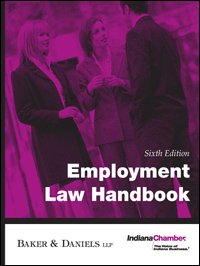Here are a couple key developments from the NLRB within the last week. If you’re a business owner, prepare to be annoyed:
Mandatory Posting Requirement
The National Labor Relations Board decided Friday to delay the required posting date of its new NLRB posting yet again — this time until April 30, 2012 (it was previously January 31, 2012). The NLRB’s web site reports:
- The National Labor Relations Board has agreed to postpone the effective date of its employee rights notice-posting rule at the request of the federal court in Washington, DC hearing a legal challenge regarding the rule. The Board’s ruling states that it has determined that postponing the effective date of the rule would facilitate the resolution of the legal challenges that have been filed with respect to the rule. The new implementation date is April 30, 2012.
Rules Regarding Union Elections
Baker & Daniels reports:
The National Labor Relations Board (Board) has formally adopted a final rule that will expedite the pre-election process and limit the post-election process in union representation cases. The rule will be published in the Federal Register on December 22, 2011, and is due to take effect on April 20, 2012.
As we previously informed you, the Board enacted this rule, which will significantly impede an employer’s right to communicate with its employees and petition the government for redress, while faced with the prospect of losing its quorum at the end of 2011. The rule focuses primarily on union representation cases in which parties cannot agree on issues such as whether the employees the union seeks to represent are an appropriate voting group. It significantly changes existing procedures in these types of cases by limiting the issues to be determined in the pre-election process and precluding pre-election review of regional office decisions in most cases. This rule will likely mean that elections are held in a much shorter timeframe.
It is expected that a variety of pro-business advocacy groups will pursue litigation in an attempt to overturn the new rules.
Unions will most likely be emboldened by the Board’s action, and it may spark an increase in union organizing. To remain union free, it is increasingly important for employers to focus on positive-employee relations and supervisory training.

